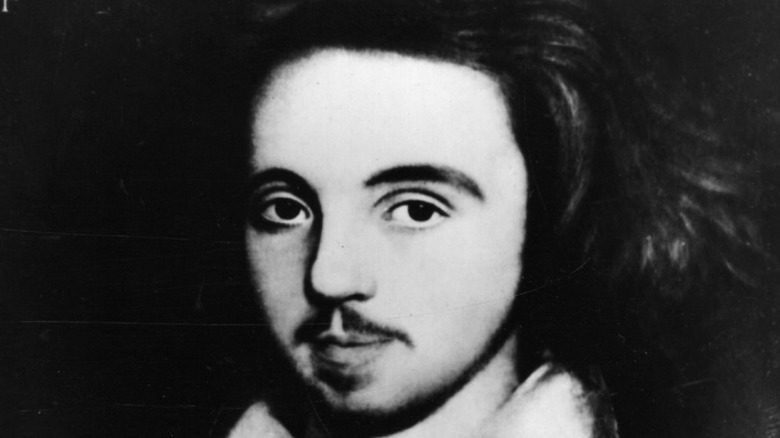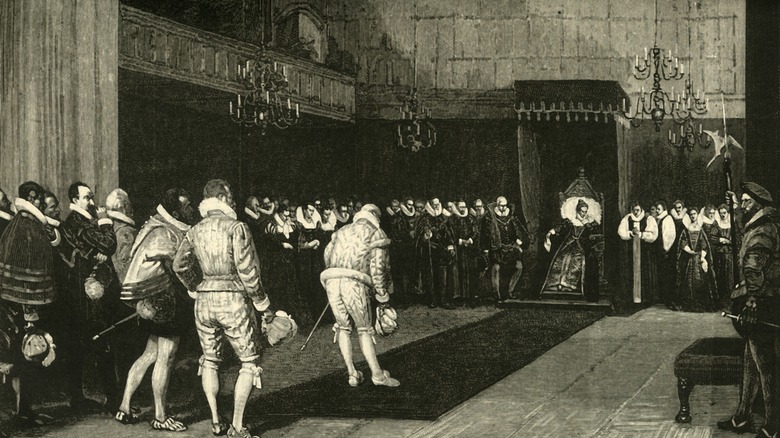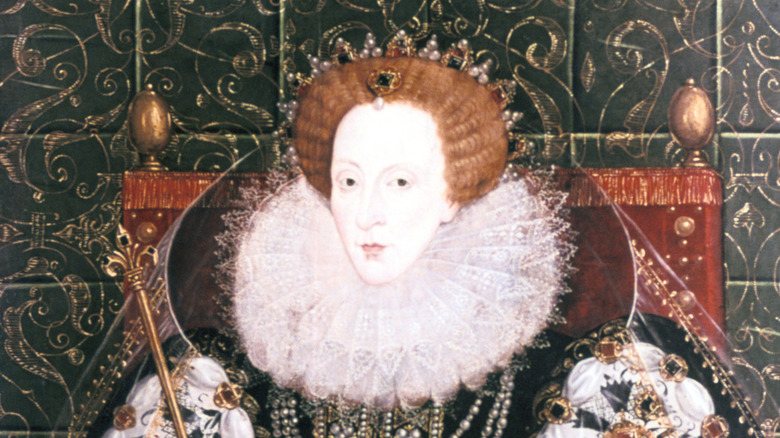Why Playwright Christopher Marlowe Was Suspected Of Being A Spy
Christopher Marlowe may be remembered as a poet and the creator of such works as "Tamburlaine the Great" and "The Tragicall History of Doctor Faustus," but he may have taken on a different role away from the theater (via Britannica). Born in 1564, he was the son of a shoemaker and grew up poor. It was only through a scholarship that Marlowe was able to attend Corpus Christi College in Cambridge (via a review of the 2005 book "The World of Christopher Marlowe" in The New York Times). And it's during his time at this hallowed institution of learning that he may have begun working as a spy.
There doesn't seem to be much in the way of hard evidence of Marlowe being involved in espionage, but there is some information that makes a compelling case for Marlowe the spy. Marlowe lived in England during the reign of Queen Elizabeth I, which was an era rife with religious and political strife. The queen had a group of advisors known as the Privy Council, and Sir Francis Walsingham was a member of the council. Walsingham spent a great deal of time and effort to develop a network of spies and agents. And it's through these operatives that he was able to thwart plots against the Protestant queen from Catholics (via Historic UK). It is thought that Marlowe may have been a secret agent for Walsingham.
Christopher Marlowe might have worked on behalf of Queen Elizabeth I
Marlowe working as a spy would explain a few things about his college days. He disappeared from school for periods of time and sometimes had more money than an impoverished student should, according to the Irish Times. And when the university balked about giving him his master's degree in the 1580s, the Privy Council intervened (via The New York Times). The council sent the college a letter stating that Marlowe had been working "in matters touching the benefit of his country."
Another interesting twist in this story of intrigue is Marlowe's personal connection to the Walsingham family. His patron was Thomas Walsingham, a relative of the top spymaster Sir Francis Walsingham, who had also done intelligence gathering for the crown himself. And there was Marlowe's 1592 arrest in the Netherlands for his role in a counterfeit coin operation. Was he abroad on a mission? Working undercover? That's unknown, but, despite the seriousness of the matter, he was never prosecuted for the alleged crime.
Christopher Marlowe died in a tavern fight — or was it an assassination?
Marlowe is celebrated today for not only introducing blank verse to Elizabethan drama, but for expressing his critical views on religion. Unfortunately for Marlowe, contradicting or questioning the country's faith was an act of heresy and a punishable offense. He got into serious trouble in 1593 when anti-religious documents attributed to him were discovered (via The New York Times). The playwright Thomas Kyd, a former roommate of Marlowe's, had the papers when he was arrested for treason (via History). Under torture, Kyd told the authorities that Marlowe had written them.
On May 20, 1593, Marlowe was arrested for being an atheist (via the Royal Shakespeare Company). The crime had a possible death sentence, and the execution method of choice was being burnt at the stake. Marlowe was released pending his trial, but he never made it to court. The official story has been that Marlowe was eating with Ingram Frizer and two others at a tavern in Deptford when a fight broke out between Marlowe and Frizer over the bill. Frizer stabbed Marlowe in (or near) the eye, which resulted in Marlowe's death. Other theories about his death have surfaced, including Marlowe being the target of assassins and that the queen had ordered his murder. One more far-fetched idea has been that Marlowe faked his death and began to write under the pen name of William Shakespeare.


